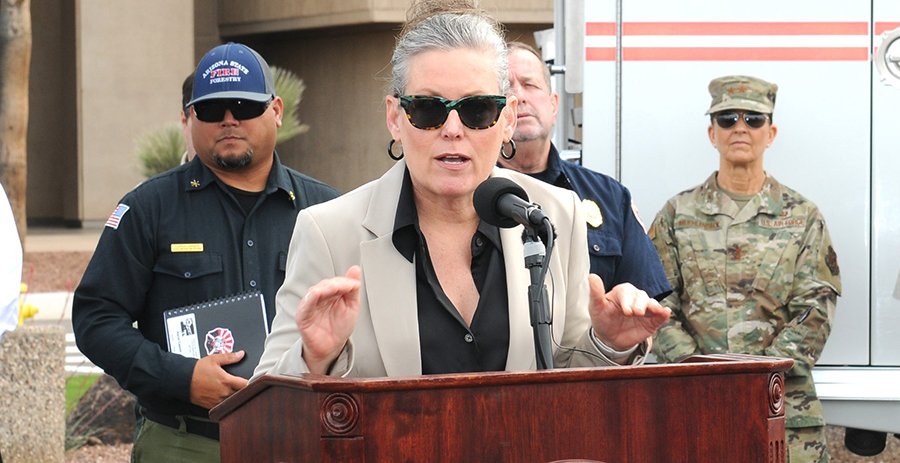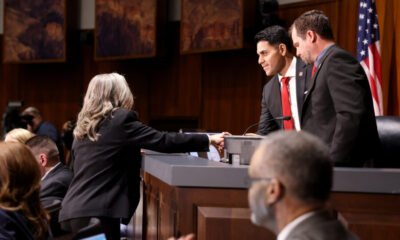Arizona Senate
Hobbs Bows to Pressure, Moves to Advance Nominees for Senate Confirmation

Arizona Governor Katie Hobbs has opted to abandon her efforts to compel the state Senate to confirm her appointees to agency leadership positions. Following an agreement submitted to the Maricopa County Superior Court on Monday, Hobbs is set to resume submitting her nominations to the Senate, starting with the upcoming session in January.
This agreement allows her nominees to serve for a maximum of one year without immediate Senate confirmation. However, the deal does not guarantee improved treatment for her appointees compared to the previous year, during which Hobbs criticized the Senate’s approach as “disrespectful.” This discontent led her to withdraw nominees and place them in roles without Senate approval.
The situation escalated when Senate President Warren Petersen took legal action against Hobbs. In June, Judge Scott Blaney ruled that the governor had acted unlawfully, yet he offered the two parties an opportunity to negotiate a resolution rather than mandating immediate compliance.
With this latest deal, Hobbs sidesteps potential court repercussions that could have publicly embarrassed her. The agreement is viewed as a significant win for Petersen, a Republican from Gilbert, and it upholds Blaney’s earlier ruling on the legality of Hobbs’ actions.
Critically, the new deal does not mandate any changes to the procedures established by Petersen’s special Director Nominations Committee, which has been scrutinized by Hobbs. She previously accused Senator Jake Hoffman, who chairs the panel, of misconduct during the vetting process of her nominees.
Notably, Hobbs may avoid legal costs associated with the Senate’s actions as part of this agreement. While she has not publicly commented on the deal, Petersen characterized it as an acknowledgment of Hobbs’ legal violations, asserting that it protects the Senate’s confirmation process.
“I look forward to reinstating the confirmation process so that we can properly vet director nominations,” he stated, emphasizing the importance of ensuring qualified individuals lead vital state agencies.
The conflict originated from Petersen’s decision to form a special committee aimed at providing thorough evaluations of gubernatorial nominees, leading to some confirmations and rejections. As of September, thirteen nominees remained unconfirmed, prompting Hobbs to withdraw their names rather than risk leaving them in limbo.
In a controversial move, she subsequently appointed these individuals as “executive deputy directors” in their respective agencies, despite the absence of Senate-confirmed directors. This maneuver raised legal concerns as it circumvented established state law.
Judge Blaney criticized Hobbs’ justification, stating that her actions violated Arizona law by excluding the legislative branch from its oversight role. He indicated that doing so would undermine the framework of laws governing state agencies.
Hobbs attempted to seek intervention from the state Court of Appeals, which was denied. This left her with the choice to negotiate a solution with Petersen before a court-imposed ruling ensued.
While Blaney acknowledged Hobbs’ frustrations with the Senate’s handling of the confirmation process, he reiterated that such frustrations do not exempt her nominees from the required oversight. Petersen underscored the role of the legislature in maintaining checks on executive power.
“No elected official is above the law,” he declared, reinforcing the necessity of legislative involvement in the confirmation process to prevent abuses of power.


















